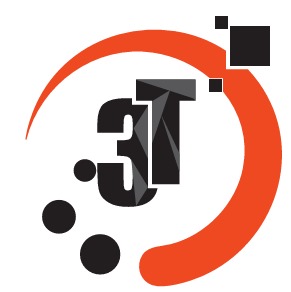Introduction
Blockchain has emerged as one of the most transformative technologies of the 21st century. Originally developed as the foundation for cryptocurrencies like Bitcoin, blockchain has evolved far beyond digital money. At its core, blockchain is a decentralized, secure, and transparent ledger system that enables trust without intermediaries. By allowing data to be recorded, verified, and shared across a distributed network, blockchain is redefining how businesses, governments, and individuals interact in the digital world.
How Blockchain Works
Blockchain operates as a chain of blocks, each containing a record of transactions. Once a block is added to the chain, it becomes immutable, meaning the information cannot be altered or deleted. The system relies on cryptographic verification and consensus mechanisms to ensure that every participant in the network agrees on the data’s validity. This structure eliminates the need for central authorities, reduces the risk of fraud, and ensures full transparency.
From financial transactions to supply chain tracking, blockchain enables secure and reliable operations across a wide range of industries.
Applications Across Industries
Blockchain is no longer limited to cryptocurrency. Its applications span multiple sectors:
- Finance: Enables faster, cheaper, and more secure transactions without intermediaries.
- Supply Chain Management: Provides transparency, traceability, and authenticity of goods from origin to customer.
- Healthcare: Secures patient records while maintaining privacy and enabling data sharing across institutions.
- Real Estate: Simplifies property transactions with transparent ownership records and smart contracts.
- Digital Identity & Voting: Offers tamper-proof systems for identity verification and democratic processes.
By creating a trusted digital environment, blockchain reduces costs, enhances efficiency, and fosters innovation across industries.
Challenges and Considerations
Despite its advantages, blockchain faces challenges. Scalability remains a concern, as processing large volumes of transactions can be slow and resource-intensive. Energy consumption, particularly in proof-of-work networks, raises sustainability issues. Regulatory uncertainty and the complexity of implementation also pose barriers for widespread adoption. To overcome these challenges, innovators are exploring proof-of-stake mechanisms, hybrid blockchains, and other advanced solutions that balance security, efficiency, and sustainability.
The Future of Blockchain
The future of blockchain is promising. As technology matures, we can expect faster, more energy-efficient networks, broader adoption in enterprise solutions, and deeper integration with emerging technologies like Artificial Intelligence, IoT, and Web3. Blockchain has the potential to transform not just finance, but the very way digital trust, ownership, and collaboration are established.
At TritechTitan, we believe blockchain is more than a technological trend — it is a foundational shift toward a more transparent, secure, and decentralized digital world.
Conclusion
Blockchain technology is revolutionizing the way we think about data, trust, and transactions. By enabling secure, transparent, and decentralized systems, it opens new possibilities for businesses and individuals alike. As the technology continues to evolve, embracing blockchain will be crucial for staying ahead in an increasingly digital and interconnected world.


Leave a Reply